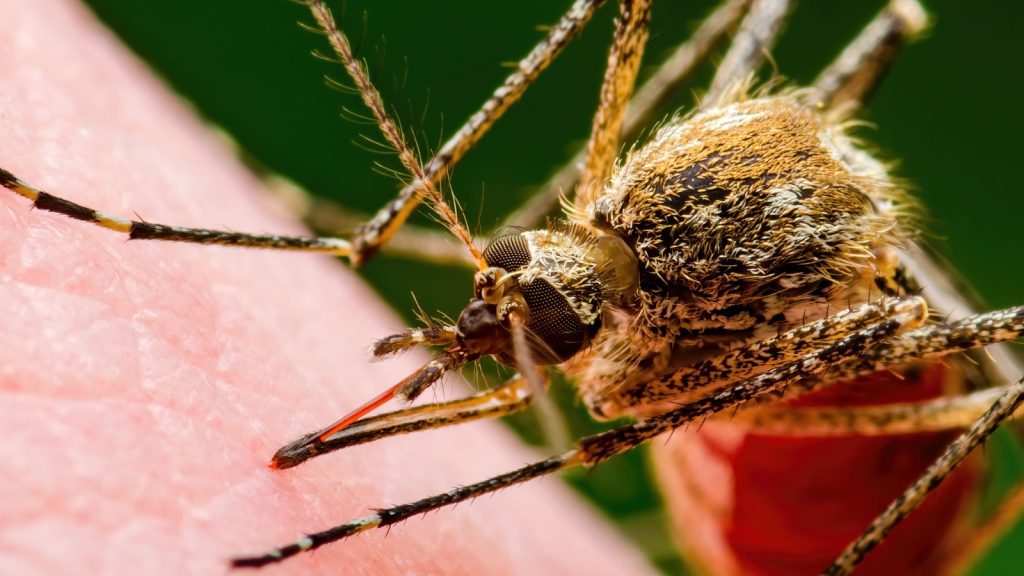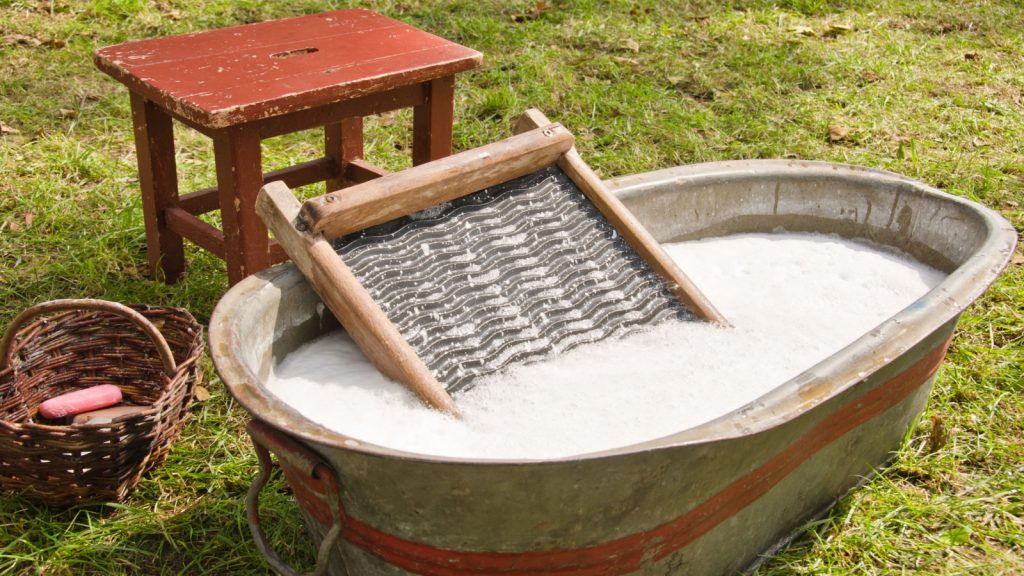
Summer evenings in the garden or on the patio can be blissful — until mosquitoes crash the party. These buzzing pests aren’t just annoying; they can also spread diseases. Over the years, I’ve found that certain plants can make all the difference in creating a mosquito-free zone. I genuinely hate mosquitoes — I tend to have a pretty bad reaction to their bites, as does one of my dogs, so, given how much time I spend working or walking outdoors, I have to work hard to make sure I keep these horrid pests away as best I can.
By choosing the right plants, you can enjoy outdoor spaces without resorting to chemical sprays. The natural oils and aromas of these plants repel mosquitoes effectively and make your garden a haven for relaxation. Here are some tried-and-tested options to transform your garden into a mosquito-free retreat.
Catnip

Catnip, beloved by cats, is also a potent mosquito repellent. Its strong scent confuses mosquitoes, keeping them away from your space. This hardy plant thrives in sunny spots with well-drained soil and is easy to grow. I plant catnip along walkways to create a natural barrier, and it returns every year with little fuss. If you want to maximize its impact, crush the leaves to release even more of its mosquito-repelling oils.
Citronella

The citrusy aroma of citronella plants, often used in candles and oils, is even more effective straight from the source. I love placing citronella geraniums in pots around the patio, where the breeze helps carry their scent. They’re low-maintenance and perfect for keeping mosquitoes away from seating areas. For extra effectiveness, give the leaves a gentle rub to release more of their natural oils into the air.
Rosemary

Rosemary does double duty as a mosquito repellent and a delicious herb for cooking. I keep potted rosemary near the barbecue for convenience and to ward off mosquitoes. Tossing a sprig on the grill releases a fragrant smoke that enhances food and repels bugs. It’s also a hardy perennial in many regions, so you’ll enjoy its benefits year after year with minimal upkeep.
Lemon Balm

The lemony fragrance of lemon balm is highly effective at keeping mosquitoes away. I often mix it with other herbs in decorative containers, which keeps it contained since it can spread aggressively. It’s a low-effort solution for natural pest control. Additionally, its leaves can be dried and used in teas, adding another layer of versatility to this plant.
Peppermint

Peppermint is one of my go-to plants for mosquito control. Its robust scent is a natural deterrent, and it grows vigorously with minimal care. Plant it in pots to keep it from spreading too much, and crush a few leaves to rub on your skin for a quick, natural repellent. You can also use peppermint leaves in homemade sprays for even wider coverage around your garden.
Lavender
Lavender’s soothing aroma isn’t just for relaxation—it’s a powerful mosquito repellent. This hardy, drought-tolerant plant is a favourite in my garden. The bonus? Its blooms attract pollinators like bees and butterflies, making it a win-win for any outdoor space. To keep lavender thriving, prune it back in early spring to encourage fresh growth and blooms.
Eucalyptus

Eucalyptus adds a refreshing scent to the garden while keeping mosquitoes at bay. Whether grown as a shrub or cut for indoor arrangements, it’s a versatile addition to any mosquito-control strategy. Just be sure to plant it in a sunny, well-drained spot. For a natural mosquito deterrent indoors, try drying eucalyptus leaves and hanging them in your home.
Pennyroyal

Pennyroyal, a member of the mint family, packs a punch against mosquitoes with its intense scent. However, it’s toxic if ingested, so plant it away from pets and children. Its compact growth makes it ideal for container gardening, keeping it both effective and contained. Pennyroyal also works well as an ornamental edging plant, adding greenery while repelling pests.
Basil

Basil isn’t just for pesto—it’s a natural mosquito deterrent. The strong scent of its leaves makes it an excellent addition to your patio or garden. Regular trimming helps keep it lush and productive, ensuring a steady supply for the kitchen and pest control. For best results, water basil consistently to prevent wilting, which can reduce its aroma.
Lantana

Lantana’s colourful flower clusters bring life to any garden while repelling mosquitoes with their aromatic leaves. I like planting lantana in sunny spots where its drought-tolerant nature shines. It’s also great for attracting butterflies and hummingbirds, adding a touch of magic to your outdoor space. Deadheading its flowers encourages continuous blooming all season long.
Bee Balm

Bee Balm is a vibrant choice for mosquito control. Its bold blooms and strong fragrance deter mosquitoes while attracting pollinators like hummingbirds. I plant it near seating areas to make the most of its pest-repelling properties and visual appeal. It thrives in moist soil, so regular watering will keep it lush and healthy.
Marigold

Marigolds are a garden staple for more than just their cheery blooms. Their scent is a powerful mosquito repellent. I use them as border plants or in containers to protect outdoor spaces. Deadheading spent flowers encourages continuous blooming and long-lasting protection. Marigolds also repel other pests, such as aphids, making them a versatile garden ally.
Geraniums

Citronella-scented geraniums are a standout choice for mosquito control. Their beautiful flowers and distinctive fragrance make them ideal for patios and garden beds. I grow them in pots for flexibility, moving them around the garden as needed to maximize their effect. Prune geraniums regularly to keep them compact and encourage continuous blooming.
Mojito Mint

Mojito Mint is perfect for summer evenings. Its strong minty aroma keeps mosquitoes at bay, while its flavor adds a refreshing twist to your drinks. Grow it in pots to prevent it from spreading uncontrollably and enjoy a mosquito-free space with a mojito in hand. This plant thrives in partial shade, so it’s a great choice for less sunny spots in your garden.
Parsley and Cilantro

Parsley and cilantro are more than culinary herbs—they’re natural mosquito repellents. Parsley thrives in clusters and offers steady protection, while cilantro can be more sensitive to heat. Plant cilantro in a cooler spot for longer-lasting results and enjoy the dual benefits of pest control and fresh ingredients. For both herbs, regular harvesting keeps them productive throughout the growing season.
Lemongrass

Lemongrass, with its citrusy scent, is a reliable mosquito deterrent. I like to grow it in pots around seating areas, where its tropical look adds style while keeping bugs at bay. It’s also a great companion plant for herb gardens, helping protect more delicate plants from pests. Lemongrass prefers well-drained soil and thrives with regular watering during dry spells.
Allium

Allium varieties like onions, garlic, and chives repel mosquitoes with their pungent aroma. These low-maintenance perennials are perfect for creating a natural barrier against pests. I love how they come back year after year, providing reliable mosquito control with minimal effort. As a bonus, allium plants deter other pests like slugs and rabbits, adding extra value to your garden.
With these plants in your garden, you can enjoy the outdoors without the constant buzz of mosquitoes. Whether you opt for fragrant herbs or colorful flowers, each of these options offers natural, chemical-free protection while enhancing the beauty of your outdoor spaces.
Ellen Reed lives where the road ends and the quiet begins. Her work tends to the tender space between solitude and connection, loss and joy, seed and harvest.
She's an author and journalist. When she's not in her garden, she's drinking tea and playing with her puppy.


